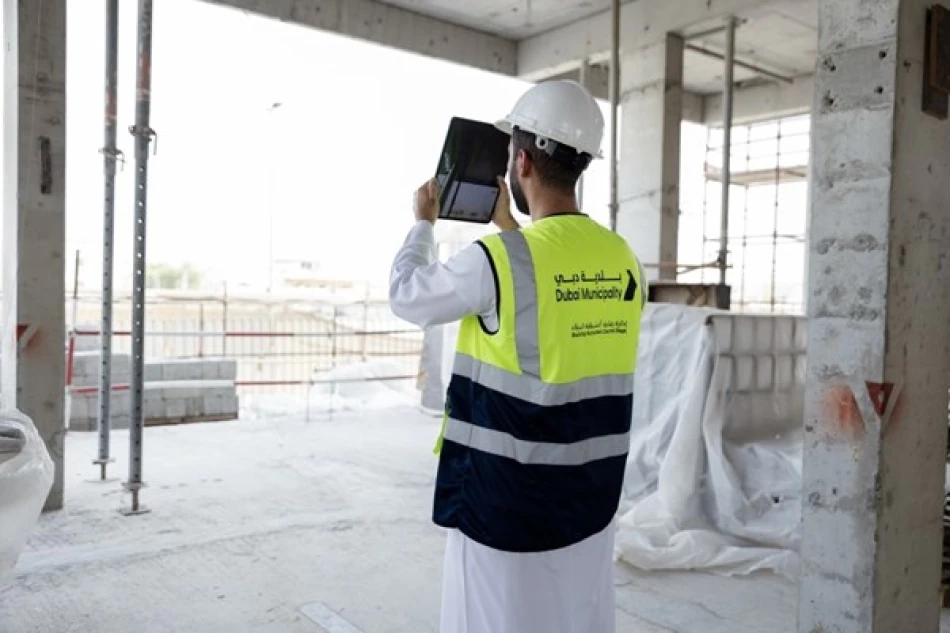
Dubai Sees Surge in Building Permit Applications: 30,000 Requests in First Half of Year
Dubai's Construction Boom Accelerates as Building Permits Surge 20% in Early 2025
Dubai's construction sector is experiencing unprecedented momentum, with building permit applications exceeding 30,000 transactions in the first half of 2025—a 20% jump from the same period last year. This surge, covering over 5.5 million square meters of new construction space, signals Dubai's continued evolution as a global investment magnet and reinforces its position as one of the world's fastest-growing real estate markets.
Record-Breaking July Drives Construction Surge
The emirate hit a significant milestone in July 2025, when more than one million square meters of new construction space received licensing approval in a single month. This record-breaking figure underscores the accelerating pace of development across Dubai's diverse real estate landscape.
The approved construction space breaks down into three key categories: commercial and multi-story investment projects claimed 45% of licensed areas, reflecting growing confidence in Dubai's business environment. Residential villas captured 40% of the total with over 2 million square meters approved, while industrial and public buildings accounted for the remaining 15%.
Digital Innovation Fuels Efficiency Gains
Dubai Municipality's digital transformation strategy has played a crucial role in this construction acceleration. The unified "Build in Dubai" platform has streamlined the licensing process, while the integration of Building Information Modeling (BIM) technology has enhanced pre-approval automated auditing systems.
These technological upgrades have significantly reduced errors and redundancies in application submissions from consulting firms and contracting companies, enabling faster and more accurate service delivery. The municipality also runs weekly specialized training programs at Dubai Municipality Academy, focusing on familiarizing new engineers with the digital platforms and BIM systems.
Global Context: Dubai's Competitive Edge
Dubai's construction boom occurs amid a broader regional competition for foreign investment and talent. While Singapore has focused on sustainable urban development and the UAE's northern emirates pursue industrial diversification, Dubai's strategy emphasizes speed-to-market and regulatory efficiency.
This approach mirrors successful models in cities like Hong Kong and Singapore during their rapid development phases, where streamlined approval processes became key competitive advantages. Dubai's 20% growth rate significantly outpaces many established global markets, where construction activity often grows at single-digit rates.
Market Implications and Investment Outlook
For real estate investors and developers, these figures suggest sustained demand across multiple property segments. The strong showing in commercial and investment projects indicates confidence in Dubai's post-pandemic economic recovery and its positioning as a regional business hub.
The substantial villa construction activity reflects continued demand from high-net-worth individuals seeking Dubai residency, particularly following the UAE's golden visa programs and favorable tax policies. This residential demand has been a consistent driver of Dubai's property market since 2020.
Maryam Al Muhairi, Executive Director of the Building Regulation and Licensing Agency at Dubai Municipality, emphasized that these statistics confirm Dubai's leading position as a global construction destination experiencing notable growth, reflecting the emirate's sustainable economic development.
Sustainability and Quality Standards
Dubai's construction surge isn't just about quantity—the emirate maintains strict adherence to the Dubai Building Code, green building requirements, and accessibility standards for people of determination. This dual focus on volume and quality positions Dubai favorably against competitors who may prioritize one aspect over the other.
The emphasis on smart and sustainable construction aligns with Dubai's broader vision to become the world's best city for living and working, suggesting that current growth rates may be sustainable over the medium term as infrastructure and regulatory frameworks continue to mature.
Most Viewed News

 Layla Al Mansoori
Layla Al Mansoori






